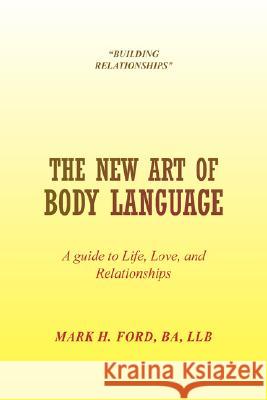The New Art of Body Language » książka
The New Art of Body Language
ISBN-13: 9781436308106 / Angielski / Miękka / 2008 / 272 str.
BOOK DESCRIPTION
Body language plays an essential role in people's everyday lives. After 9/11 life in America is no longer the same. The world we knew is rapidly changing. New ways of protecting ourselves, doing business, and meeting personal challenges are on everyone's mind. But how can a knowledge of body language help? Based on the latest research available, this book tells readers how to identify the signs, signals, hints, and clues that people use to convey their innermost thoughts, feelings, and attitudes. Readers will learn how to organize information quickly for crucial decisions, better understand the intentions of others, and improve their relationship skills in life and love.
OTHER NEW TOPICS:
. Ego defenses.
. What's in a name.
. Negative behavior, controlling people, and dysfunctional relationships.
. Self-presentation.
EXTRA BONUS-mirror and matching techniques to improve self image and personal empowerment.
Facial expressions, posture, dress attire, movements, and gesturing all infer behavior when clustered together. Knowing the hints, signs, and clues people use to convey how they feel about what they are saying is critical to building and maintaining relationships. Also, a knowledge of body language helps us to know ourselves and others better. It's not "what" you say, but "how" you say it.
This is a nonfiction, self-improvement book that deals with the critical role of body language in everyday life, and how to use body language to improve your relationships. Since body language is how people convey their feelings and attitudes along with oral communication, it is more important and more reliable then what they say. Oral communication is cloaked in subjectivity, codes, ambiguity, paralinguistics, and disfluency that challenges getting the intended message across.
People in law enforcement consider body language a valuable tool in fighting crime, sociologists believe body language is crucial to forming and maintaining relationships, and business people admit that it benefits global business. This book covers the most recent research findings of nonverbal studies on a wide range of diverse topics, including the rationale underlying body language. For an interesting and easy read, it is divided into nine sections and forty chapters with numerous sidebars and subheadings.
Part One entitled Relationship Basics lays out the basics of relationships and body language, including the role of intuition, timing, and the five senses in body language interpretation. Also, gender differences are briefly analyzed.
Part Two entitled Universal Expressions deals with some of the ways people are similar. Seven facial expressions are common to people in all cultures. For example, a smile is a universal expression although variations have different meanings.
Part Three entitled Appearances and Body Language looks at the connection between body language and appearance. The difference between non-elective body language such as the mouth, nose, chin and ears and elective body language such as clothing and accessories are explored. Americans live in a metaphorical world where appearances are everything, say the experts. For instance, who has it and who doesn t, and does it matter?
Part Four entitled Body Movements and Relationships delves into the body language of movements such as posture and walking. Not just etiquette and deportment any longer, posture and walking are rich in nonverbal signals. Posture is the best indicator of a person s state of mind when communicating. Eye movement is a potent means of communicating nonverbally. For example, eye contact maintained a fraction of a second longer than appropriate can cause physical aggression, but in other contexts it can be a strong signal of sexual attraction. The importance of head moves in public speaking and listening is covered as wel











